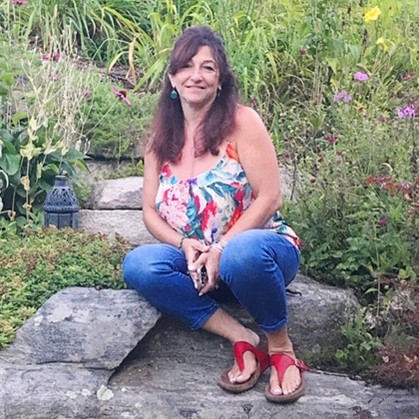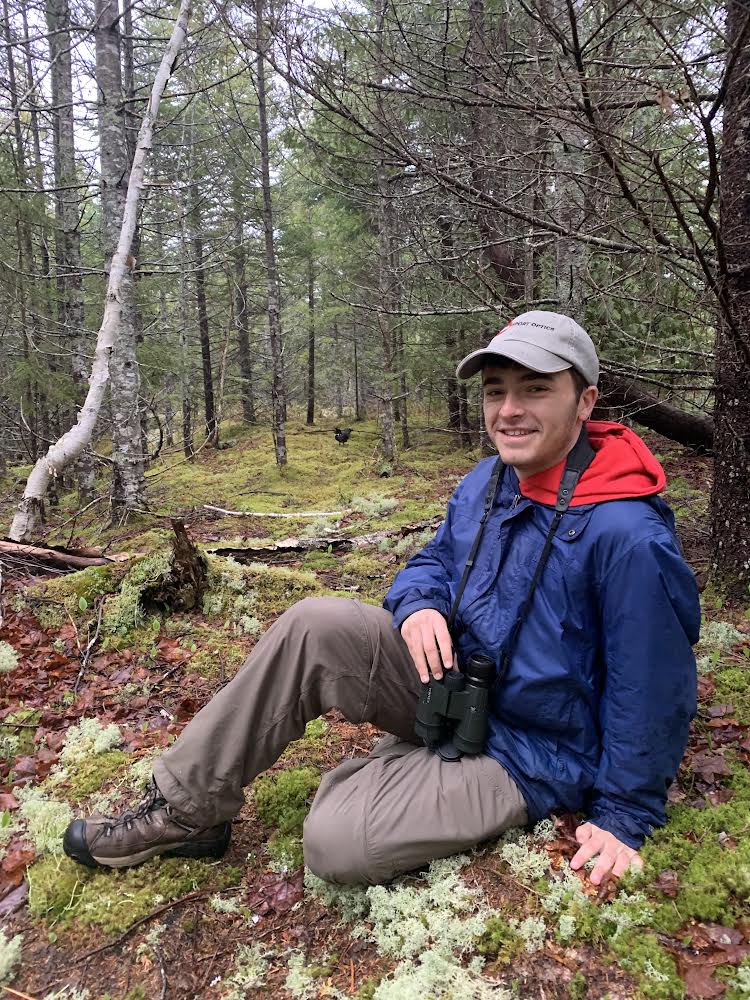|
THE MARSH CONNECTION
News from the Meadowlands Environment Center and the NJ Sports and Exposition Authority
| |
Partnership with Perth Amboy Academy for Urban Leadership on School to Farm Grant from US Department of Agriculture | |
The MEC is a partner with Academy for Urban Leadership on a planning grant for a Farm to School Program from the US Department of Agriculture. Our expertise and experience in hydroponics will help plan a powerful STEM related curriculum that is collaborative, student-centered, and relevant to the students’ lives. The grant partners and the MEC team will conduct an inclusive and comprehensive action planning process, to include defining a vision and mission, brainstorming activities, prioritizing activities of the project.
The grant team will submit a second grant in this USDA program to deliver an agriculture education program to students in the Academy for Urban Leadership.
| |
Global Warming & Climate Change | |
|
The MEC team has been invited to make presentations on our professional development programs on Global Warming and Climate Change:
- January 12 - The Passaic County Association of School Administrators first Vendor Fair at Passaic County Community College.
- January 25 – The Hudson County Professional Learning Community at Harrison High School.
We hope to attract and recruit educators from new school districts from Passaic and Hudson Counties for our programs.
For more information or to schedule a workshop, please call 201-460-8300.
| | |
|
“Camp Discovery”
Professional Development
| |
|
Calling all Grade 3-5 classroom teachers!!!
The MEC team and Ramapo College Education Program are planning “Camp Discovery” a four day PD camp for grade 3-5 teachers at the MEC from 9:30 – 1:00, June 24-27, 2024. Teachers will experience hands-on science activities they can easily do in their classrooms. Activities will cover life science, energy, sustainability, and human impact on our planet. Teachers will receive a resource bin containing a binder with all activities and all the supplies and equipment they need for implementation in their classrooms. All activities are coded to the NJ Student Learning Standards for Science (NJSLS-S).
For more information, please call Michele Daly at 201-390-5583 or Email Us.
| | |
Time to Sign Up for
Summer Programs at the MEC!
| |
|
Although it may be January, our staff is already looking toward the summer months and has begun working with local town recreation programs to bring their campers to DeKorte Park. Campers entering kindergarten through grade 8 will become immersed in the environment through activities exploring the land, air, and water. Unlike many traditional summer camps, MEC program offerings focus on reinforcing school-year curriculum and practicing skills that will be reintroduced when school starts again. To incorporate a science-based field trip into your organized group or recreation camp schedule, check out our flyer or call 201-460-8300 for more information and to book a date.
If you are a parent interested in signing your child up for a summer camp experience, the MEC has partnered with the Lyndhurst Recreation Department to offer two weeks of hands-on fun at our Center. More information can be found on our website on February 1st for online registration opening on April 1st.
| |
|
Meadowlands Eagle Festival Is This
Sunday, Jan. 14!
| |
|
The NJSEA and the Bergen County Audubon Society have an abundance of activities lined up at the family-focused Meadowlands Eagle Festival. The event takes place at DeKorte Park and in the Meadowlands Environment Center, this Sunday, Jan. 14; from 10 a.m. to 2 p.m. Snow date is Sunday, Jan. 21.
We will be taking visitors on guided Eagle walks throughout the day. There will also be talks, live raptor shows, and crafts and activities for kids. Youngsters are invited to bring their own Eagle artwork. For more information, contact Don Torino at greatauk4@gmail.com or 201-230-4983.
| |
Saltmarsh Sparrow Study Brings Hope | | |
|
|
The Saltmarsh Sparrow is a small and secretive bird species found only in the coastal marshes of the eastern United States. This species faces extinction primarily due to anthropogenic climate change leading to sea level rise.
Throughout the summer and fall of 2023, NJSEA Meadowlands Research and Restoration Institute (MRRI) biologists studied the breeding ecology of Saltmarsh Sparrows at a site along the Hackensack River (top picture). Previous observations suggested a steep decline in the Meadowlands population, but MRRI found far more adults at the site than expected.
Their work led to the discovery of multiple Saltmarsh Sparrow nests that successfully fledged young. These observations offered a small glimmer of hope for the Meadowlands population of this imperiled species. Going forward, MRRI biologists will continue to monitor Saltmarsh Sparrows in the Meadowlands, assess conservation needs and ultimately develop restoration goals.
(bottom picture of Saltmarsh Sparrow Habitat)
| |
|
Fisheries Resource Inventory Data
Reveals Positive Trends
| |
|
In the summer and fall of 2023, MRRI scientists completed two seasons of collections on the fourth iteration of the Fisheries Resource Inventory of the Lower Hackensack River. This project dates back to the late 1980s and serves as a long-term dataset tracking the recovery of the fish community of the lower Hackensack River.
In total, 36 collections yielded 3,860 fish of 24 species and an additional 631 blue crabs. While it is still too early in the process to make any significant comparisons to previous inventories, MRRI has been able to make a few notable observations.
- A Meadowlands first - black seabass (Centropristis striata) was encountered in summer 2023. (top picture)
- A Meadowlands first - silver perch (Bidyanus bidyanus) was counted in fall 2023. (bottom picture)
- Through two seasons, MRRI biologists have caught more Atlantic croaker (Micropogonias undulates) and Oyster toadfish (Opsanus tau) than in all previous inventory collections combined.
- The Institute has already caught roughly the same number of weakfish (Cynoscion regalis) as in the entire previous inventory.
- They have already caught about twice as many blue crab (Callinecter sapidus) as in the entire previous inventory.
| |
|
Water Quality Monitoring Helps Keep The Hackensack River Clean | |
|
MRRI’s seasonal water quality program samples 14 stations from the lower Hackensack River four times yearly for 27 parameters. Two additional stations collect continuous water quality data from the main stem of the Hackensack River.
In 2022 and 2023, all water quality parameters met the New Jersey Department of Environmental Protection Surface Water Quality Standard (SWQS). The exceptions were a few discreet low oxygen events. Aside from the above, there have been no significant changes in the factors influencing the water quality of the Hackensack River and its connected creeks.
Photo of staff performing maintenence on River Barge Park Water Quality Monitoring Station.
| |
Meet Karin LaGreca Environmental Educator |  | |
Karin LaGreca has worked at the MEC since 2010, she started as a co-op student while obtaining her undergraduate degree from Ramapo College. She completed a Master’s of Arts in Sustainability Studies from Ramapo while working part time at the Center.
Karin continues to teach younger students about environmental and economic sustainability at the MEC as well as teaching college students at Ramapo about world sustainability as an adjunct professor. She works as a private consultant where her expertise focuses on helping municipalities to implement sustainability initiatives, social equity, and initiating green infrastructure projects. She is Chairwoman of the Board of Directors for The Mahwah Environmental Volunteers Organization, (MEVO), a youth not for profit organization.
Karin is a dedicated environmental educator helping everyone to realize that development and growth do not have to compromise our habitats and water quality. We can design to build with nature to benefit today and future generations.
| |  |
Meet Mike Turso MRRI Wildlife Biologist |  | |
Mike Turso grew up as a birder and naturalist in northern New Jersey, frequently spending his weekends exploring the wildlife of the Meadowlands. This led him to a career in wildlife biology. Much of his current work focuses on the rare and cryptic wildlife species found throughout the Meadowlands. He uses his experience with field data collection as well as bioacoustics to assess the distribution and habitat associations of these species.
Mike uses his analytical skills to more deeply understand Meadowlands wildlife populations and how they interact with changing ecosystems. He participates in a wide variety of Meadowlands projects including bird banding, fisheries inventories and remote live camera monitoring. His passion for wildlife has driven him to dedicate his professional life to conserving nature for the benefit of all.
Mike earned a Bachelor’s degree in Wildlife Ecology from the University of Maine and is pursuing a Master’s degree in Wildlife and Fisheries Resources from Clemson University.
| | |
|
That one of species of an important and abundant member of the aquatic ecosystem in the Meadowlands was the first fish in space? Two mummichog fish (Fundulus heteroclitus) were flown to Skylab in 1973 (https://nationalzoo.si.edu).
Mummichog is the Narragansett word meaning “going in crowds” for these fish because they swim in schools, sometimes containing hundreds of individuals. They have a stout body and an upward tilted mouth, smetimes refered to a a smile, because they like to feed on the surface, eating tiny crustaceans, insect larve and fish eggs. They have been reported to eat up to 2,000 mosquito larvae a day!
The species ranges along the Atlantic coast of North America, from the Gulf Coast of Texas all the way up to the Gulf of Saint Lawrence in Canada. In the Meadowlands they are an important food source for other fish, turtles and for wading birds. A tolerant species, the mummichog is able to withstand changes in temperature and salinity, low oxygen and pollution.
Fundulus heteroclitus are commonly called “killies” because they belong to a non-formal group of fish called “killifish” likely from the Dutch word “kill” meaning “stream”. Most killifish live in fresh or brackish water and many can go back and forth between the two.
| | | | |